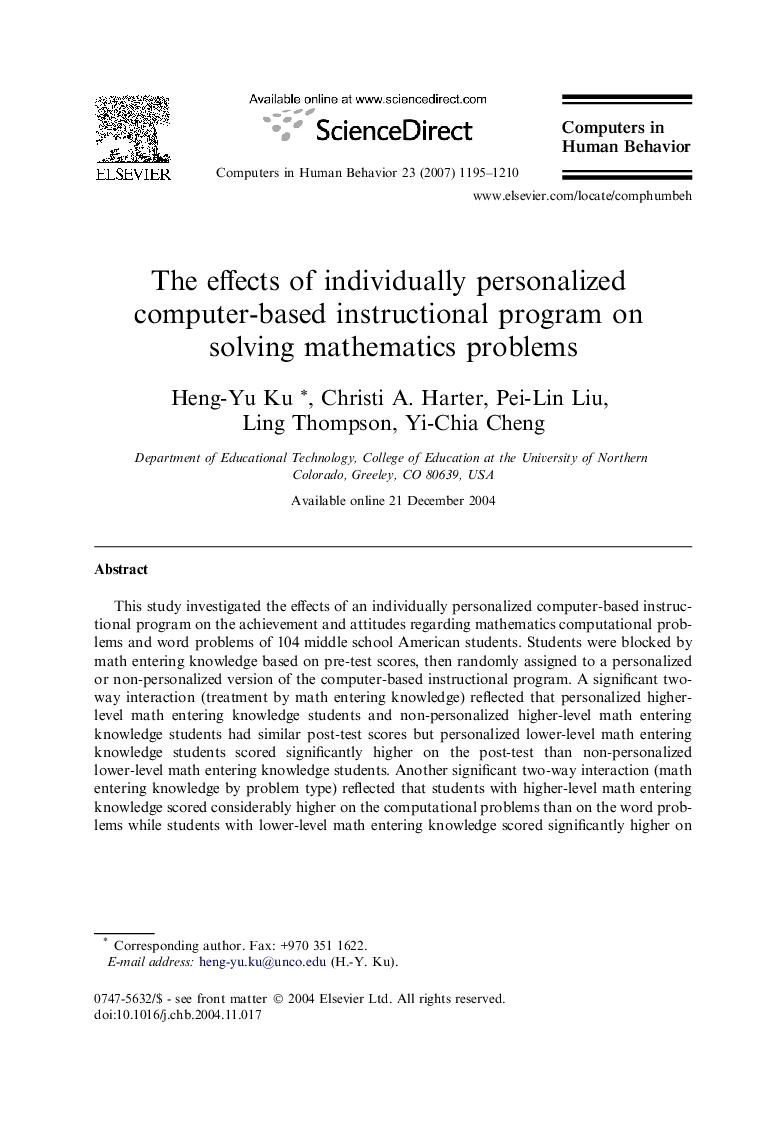| Article ID | Journal | Published Year | Pages | File Type |
|---|---|---|---|---|
| 352459 | Computers in Human Behavior | 2007 | 16 Pages |
This study investigated the effects of an individually personalized computer-based instructional program on the achievement and attitudes regarding mathematics computational problems and word problems of 104 middle school American students. Students were blocked by math entering knowledge based on pre-test scores, then randomly assigned to a personalized or non-personalized version of the computer-based instructional program. A significant two-way interaction (treatment by math entering knowledge) reflected that personalized higher-level math entering knowledge students and non-personalized higher-level math entering knowledge students had similar post-test scores but personalized lower-level math entering knowledge students scored significantly higher on the post-test than non-personalized lower-level math entering knowledge students. Another significant two-way interaction (math entering knowledge by problem type) reflected that students with higher-level math entering knowledge scored considerably higher on the computational problems than on the word problems while students with lower-level math entering knowledge scored significantly higher on the computational problems than on the word problems. Student attitudes were significantly more favorable toward the personalized computer-based instructional program.
